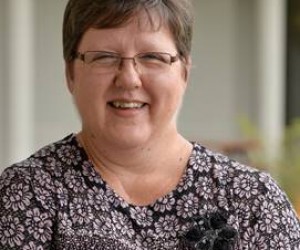Philosopher George Santayana is credited with the quote, “Those who do not learn from history are doomed to repeat it.” South Africans are well aware of the tremendous value of history and its role in shaping the future of the country. In fact, there are already calls to make history a compulsory subject in schools in the near future.
During the month of August, Monash South Africa (MSA) is honouring its female educators, who are working tirelessly to help prepare the youth and next generation of leaders. These incredible women have made a tremendous difference in the lives of their students, through their dedication to quality education.
Amongst them are Anna-Mart van Wyk, who is the Executive Dean of the Faculty of Social and Health Sciences at Monash South Africa, as well as an Adjunct Professor of History at Monash University.
Van Wyk completed her DPhil in History at the University of Pretoria in 2005, and wrote her thesis on the 1977 United States arms embargo against South Africa and its implementation until 1997. She subsequently went on to specialise in the history of South Africa’s nuclear weapons programme.
The beginning of the end
The era of nuclear weapons kicked off seventy-three years ago (August 1945), with the atomic bombings of Hiroshima and Nagasaki. It hit its peak during the Cold War, when catastrophe was frequently being averted because of the policy of mutually assured destruction (MAD) between the US and the Soviet Union.
Van Wyk is passionate about WMD (weapon of mass destruction) non-proliferation and disarmament, and has lectured courses on contemporary arms control, disarmament, diplomacy, and world history, in addition to providing postgraduate supervision in related fields.
She has also lectured at numerous esteemed global institutions such as Yale University, the London School of Economics, the United Nations Office for Disarmament Affairs, Erasmus University, and Sciences Po.
Global issue, local repercussions
South Africa itself is also no stranger to nuclear arms, having developed 6.5 nuclear bombs during the apartheid years, before destroying this arsenal in 1989 and acceding to the Nuclear Non-proliferation Treaty in 1992.
As one of the country’s leading experts in non-proliferation and disarmament, Van Wyk has spent the past eight years as a faculty member of the annual Nuclear History Summer School (‘Bootcamp’) hosted by the University of Roma Tre. She has become a leading figure in the local, regional and international educational arena.
During 2010, she became a partner of the Carnegie-funded Nuclear Proliferation International History Project (NPIHP), based within the Woodrow Wilson International Center for Scholars in Washington, DC and the University of Roma Tre.
Furthermore, she is also a research participant of the Tobin Project on Strategic Threat Assessment in the Early Nuclear Era, in partnership with the Harvard Kennedy School, the Massachusetts Institute of Technology, the University of Texas at Austin, and Dartmouth College.
A former Public Policy Scholar of the Woodrow Wilson International Center for Scholars, her work has been widely published and presented at various international conferences, and she was twice the recipient of the Monash South Africa Distinguished Researcher Award in recent years.
Through dedicated lectures and researchers like Van Wyk, lessons from the past will continue to be turned into actionable insights for the future, helping to keep the hands of the symbolic ‘Doomsday Clock’ away from midnight.
About Monash South Africa
Monash South Africa is dedicated to supporting South Africa and the continent to meet its diverse economic and educational needs by producing graduates who are globally-minded and internationally relevant.
Founded by Monash University, in 2001, MSA became the first institution in Sub-Saharan Africa to join the Laureate International Universities network, further cementing its global reach. To learn more, visitwww.msa.ac.za






